Top 7 brands that are reinventing the sanitary napkin in 2023
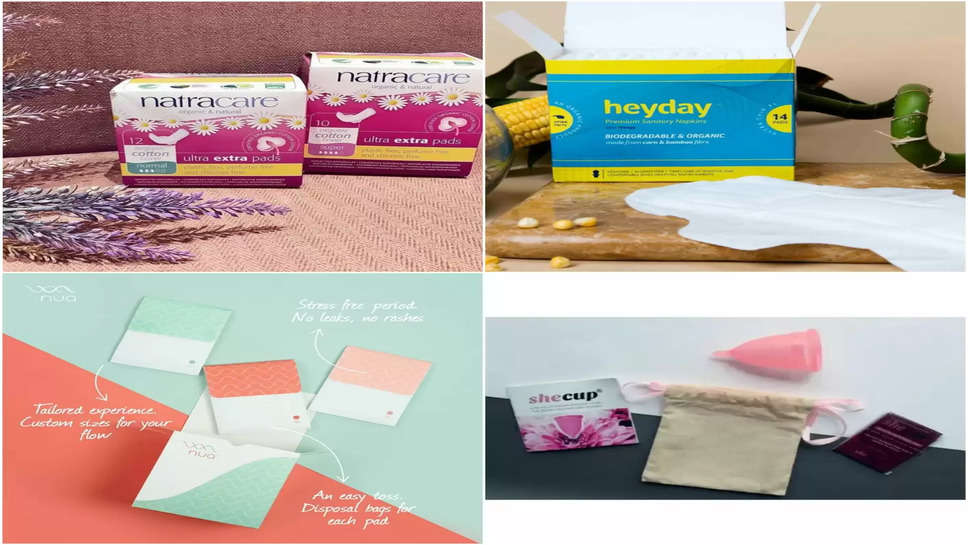
These alternatives can make a significant difference to both your vagina and your ethical principles, ranging from biodegradable options made from bamboo and banana fibers to those infused with beneficial negative ions.
Shall we begin with the statistics? On average, women use between 7,000 to 17,000 sanitary napkins throughout their lifetime, which equates to approximately seven years of wearing a pad. This extended period of using a foreign object in close proximity to the delicate skin around the vagina could be the reason why numerous women report experiencing rashes, allergies, skin sensitivity, and general irritation while menstruating. Furthermore, prolonged exposure to harmful toxins present in synthetic pads could directly cause cervical cancer, yeast infections, UTIs, miscarriages, and even birth defects.
Conventional feminine hygiene products also don't fare well in terms of the environment. Carmesi's research reveals that in India alone, 9,000 tonnes (equivalent to 432 million pads) of soiled sanitary napkins are produced annually, and due to improper disposal practices, they end up in sprawling landfills where they persist indefinitely.
In recent times, several individuals and startups have emerged as saviors for women seeking natural and biodegradable alternatives to synthetic pads. Here's why we recommend that you make the switch without delay.
Heyday
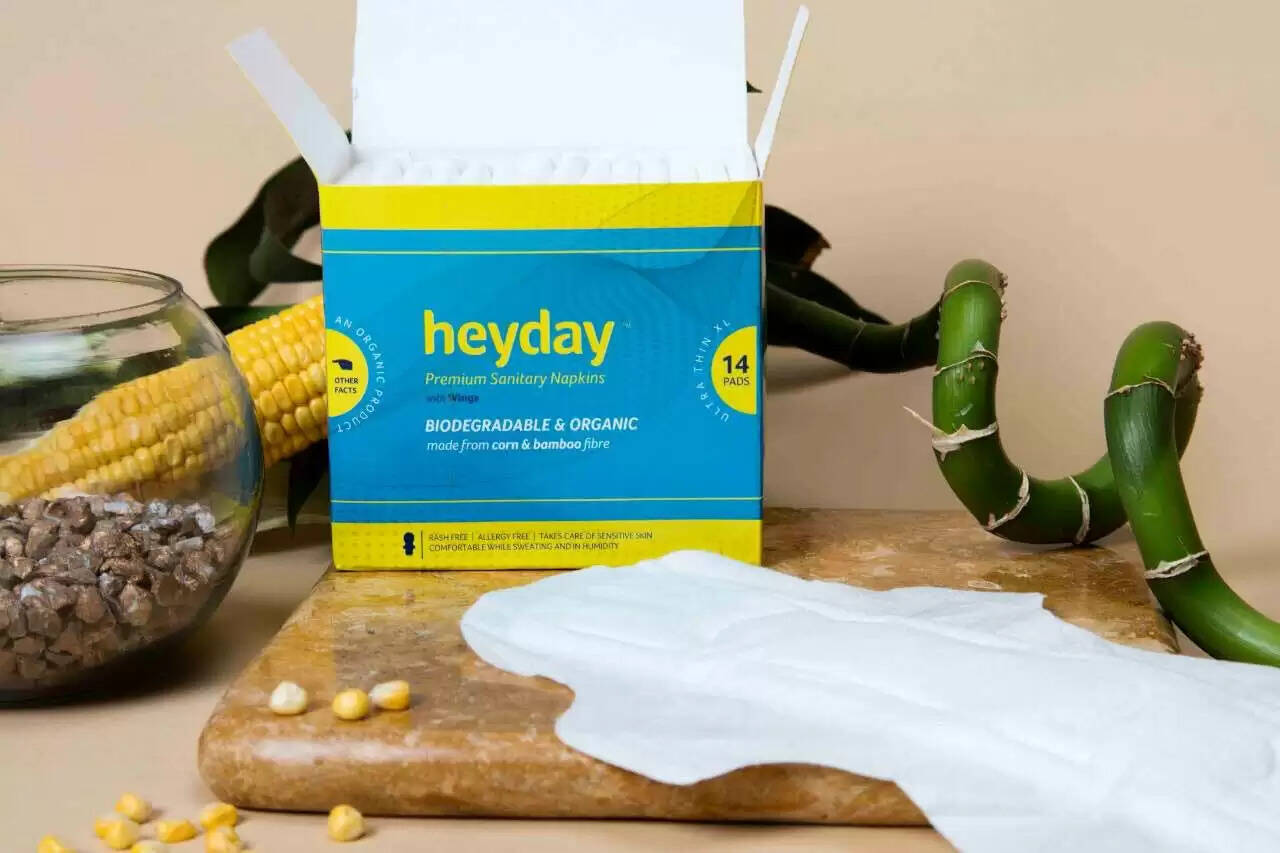
Why it’s good for you: Heyday, a brand named after the most active phase of a person's life, offers natural sanitary napkins that are made from corn and bamboo fibers. These materials are both antibacterial and soft, while the top sheet of the pad is designed to allow air flow to the vagina, which is not the case with regular pads. Additionally, the Heyday pad is free of plastics, perfumes, bleaches, latex, and toxins. What's even better is that this eco-friendly napkin begins to decompose just six months after being disposed of, leaving you feeling good about your impact on the environment.
The clincher: The napkin is extremely thin, yet it contains seven super-absorbent core sheets in each pad that prevent the blood from leaking through.
Carmesi
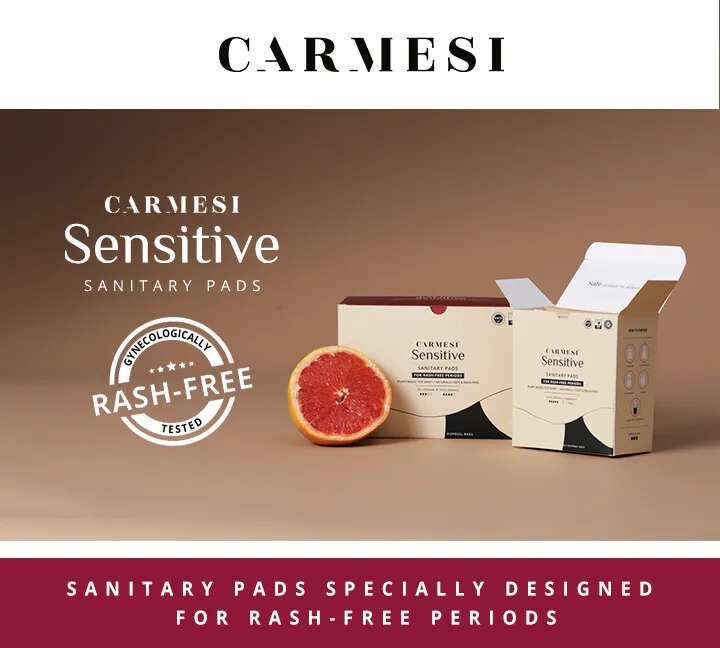
Why it’s good for you: Carmesi provides a unique and personalized approach to menstrual care. Their pads consist of a top sheet made of cornstarch, a middle layer made of bamboo fiber,and a bottom layer made of corn-based bioplastic. To enhance the user experience, pads are delivered in an attractive vanity box, eliminating the need for black polythene bags that may cause embarrassment. Carmesi also offers customized solutions and delivers pads according to the user's menstrual cycle, breaking away from the traditional one-size-fits-all approach.
The clincher: With each purchase of Carmesi pads, a portion of the profits is donated to supply sanitary pads to women in need.
Natracare
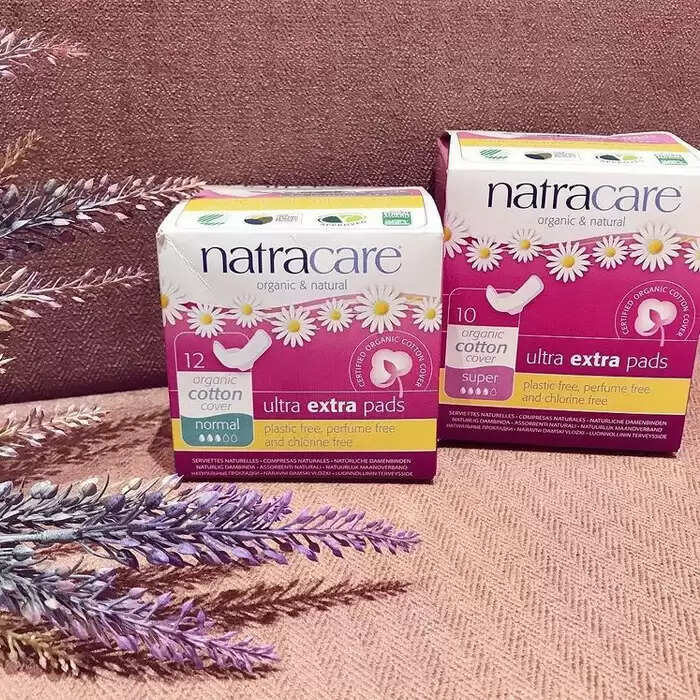
Why it’s good for you: Natracare, a company with a long history of producing natural goods, has furthered its commitment to sustainability by introducing an alternative to traditional feminine hygiene products. Their pads consist of three layers: a top layer made of 100% certified organic cotton that sits against the skin, an absorbent core made of ecologically-certified cellulose pulp, and a non-toxic adhesive layer. These plastic-free products are even packaged in biodegradable materials and use a cellulose plant material for the backing layer. Natracare is the first brand to offer such an environmentally-friendly solution.
The clincher: The absorbent layer of cellulose pulp is sourced from rapidly-growing trees that enhance soil health.
Vivanion
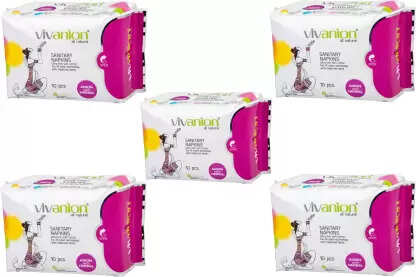
Why it’s good for you: Vivanion is recognized as India's first 3-in-1 sanitary napkin brand, designed to encourage women to use pads of varying lengths and absorbencies throughout their menstrual cycle. Each pack includes napkins specifically designed for day-use, night-use, and first/last-day use. The pads are infused with negative ions, also known as anions, which promote blood circulation and travel up the womb through the vagina, aiding in the smooth discharge of blood clots and aiding in womb repair. Many women have reported seeing improvements in their physical health after using the product for only 3-5 days.
The clincher: The presence of anions in the napkin strengthens the nervous system, providing energy to the body, enhancing sleep quality, relieving pain and tension, and increasing the count of red and white blood cells
Sakhi
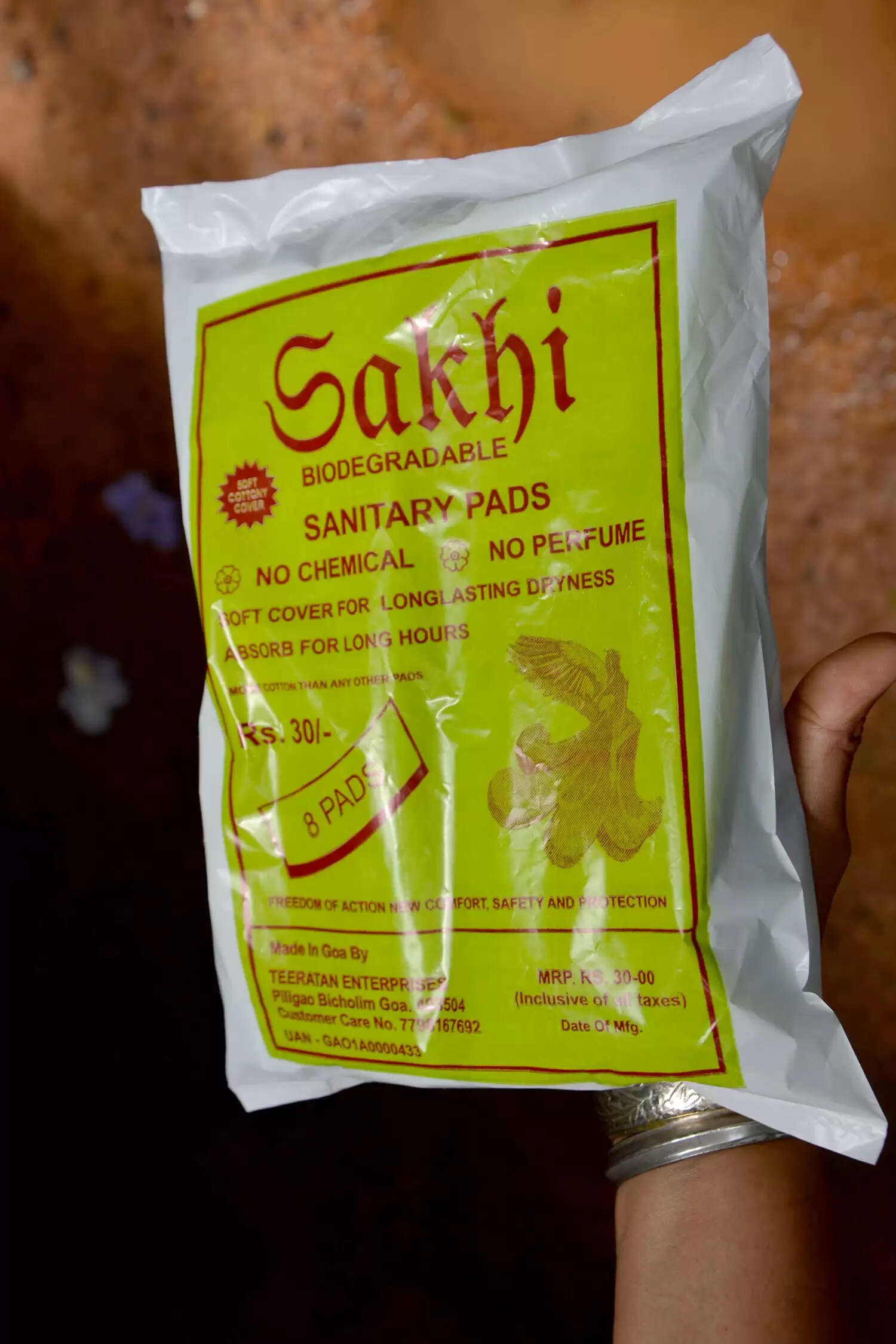
Why it’s good for you: In partnership with Saheli, a Self-Help Group in Goa, Jayshree Parwar and three other women have launched an initiative to produce and sell eco-friendly sanitary pads. The pads are carefully manufactured at Jayshree's home to maintain high standards of hygiene and sanitation. Composed of pine wood paper, silicon paper, butter paper, non-woven paper, and cotton, the pads are biodegradable and will decompose in mud within eight days. Furthermore, the pads undergo UV light radiation to eliminate any potential germs that may have been encountered during the production process.
The clincher: Prior to Pawar's discovery that banana fibre could serve as a superb substitute for conventional ingredients in typical pads, farmers were composting banana trees after each harvest. However, with this breakthrough, farmers can now earn additional revenue by selling the fibre, while also enabling the production of all-natural pads.
SheCup
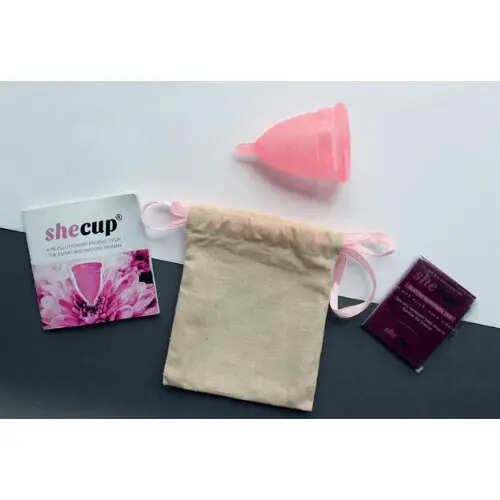
Why it’s good for you: The menstrual cup is a revolutionary option in the feminine hygiene product market and is considered one of the most sustainable alternatives. The SheCup, made of silicone and worn internally to collect menstrual blood, requires minimal water for cleaning and can be worn for up to 12 hours. Unlike tampons or pads that absorb blood, the cup collects it, reducing the likelihood of infections or rashes. Once full, the contents can be emptied into the toilet, and the cup can be cleaned and reused. Despite receiving high praise from most users, the product has yet to gain traction among Indian women, particularly unmarried women, due to societal patriarchy and the focus on hymen preservation.
The clincher: Despite being slightly more expensive than other feminine hygiene products, the SheCup can last for up to three years with proper maintenance. Additionally, it is completely odourless and can be worn for an entire day without needing to be changed.
Personalisation props: Nua
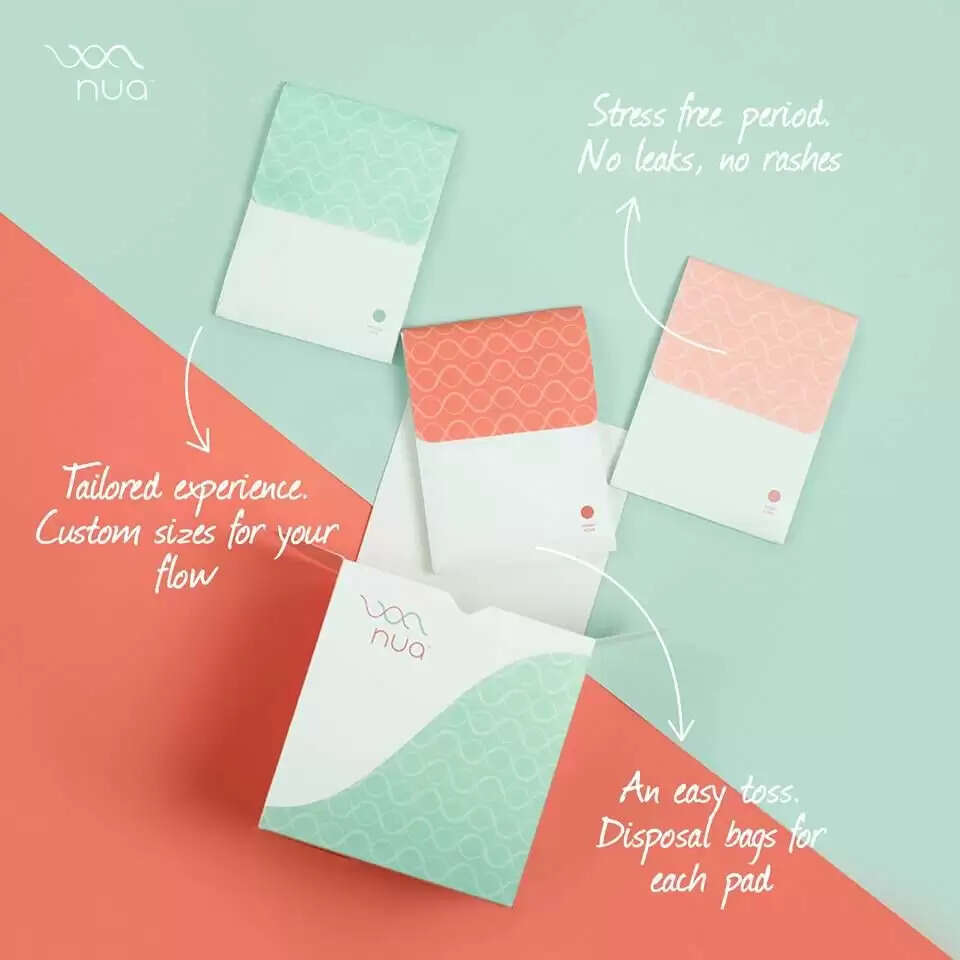
Why it’s good for you: While the brand may not be environmentally friendly, it is reassuring that the napkins are manufactured in Korea, which is considered the gold standard for quality and hygiene in the feminine care industry. The napkins feature a natural, ink-free surface and offer customizable packs based on flow and size. The design of the pad, its cover, and packaging is practical for storage and easy to dispose of.
The clincher: When you subscribe to Nua's monthly delivery service online, you will be prompted to provide your menstrual cycle details and preferred delivery frequency, eliminating the need for last-minute visits to the pharmacy. Similar to Vivanion, the Nua subscription box contains three color-coded variations based on the flow intensity of your period.

